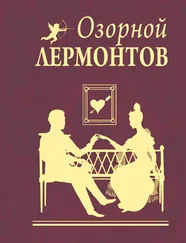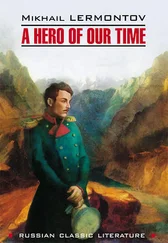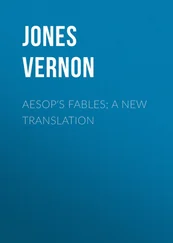Mikhail Lermontov
A HERO OF OUR TIME
Mikhail Lermontov finished writing his novel, A Hero of Our Time, at roughly the same age that I was working in a Blockbuster video store and annually flunking a remedial math course in college. I may have those dates wrong, but it’s pretty darn close. I’m one of those people who often compares their artistic progress to the work of a few of their literary heroes, and Lermontov was one of them. Georg Büchner was another, and he had written all of his works and was dead by twenty-three (he also found the time to become a medical doctor, but that’s just plain annoying). Orson Welles terrified America by roughly that same age with his War of the Worlds radio broadcast and had also made what most critics describe as “the best film ever made” ( Citizen Kane ) by twenty-six. If I’m not mistaken, I think I passed that math class at about the same age.
Lermontov, of course, didn’t live long after the publication of his first prose work (a bullet in a duel saw to that), but he effectively helped chart the course for the modern Russian novel with one stroke. Like a few others—Shakespeare being perhaps the godfather of the bunch—Lermontov began writing in a psychological manner before the term really had any weight to it and well before Freud started seeing the word sex floating in every cup of coffee (and still had the use of his own jaw). One could carry on at some length and gush intellectually about all of Lermontov’s influences and influential works, but most of you would know that I simply looked him up on Wikipedia and that I’m really just reciting somebody else’s research back to you. I’d rather try to be truthful and express a little respect toward someone who stumbled onto a way of working that, within the confines of one short prose work, actually advanced the way we see and think and feel about the novel.
The character of Grigory Alexandrovich Pechorin is one that amuses as much as he distresses. After you have finished reading Lermontov’s work you are thankful it’s only a novel, but you’re also quite sure it’s a truthful portrait of the artist as a young soldier. Much has been made of how autobiographical or not Lermontov’s personality sketch of Pechorin is. In the end, though, that hardly seems to matter. Whether emerging from a poisoned look in the mirror or derived from a thousand details of his friends and neighbors, Lermontov gets the alchemy just right and creates one of the most vivid and persuasive portraits of the male ego ever put down on paper. Everyone from Dostoyevsky to Palahniuk needs to thank Lermontov for not shying away from his “warts and all” creation and for setting the literary bar so damn high. It’s not for nothing that writers like both Turgenev and Chekhov have commented on the ruthless honesty with which Lermontov wrote. Indeed, Chekhov was rumored to have remarked, “Still just a boy, and he wrote that!” (I’m sure if Mr. Chekhov had been flunking a math class he would’ve been even more impressed.)
There are some terrific and clever uses of structure in Lermontov’s work—the diary sections juxtaposed with the other two tales, the multiple narrators, etc.—but I am most taken with his precise and ruthless approach to character. Lermontov never tries to fully explain Pechorin’s behavior, and, most important, he never apologizes for it. This is psychology at its most advanced. Let the critics and the scholars sit about and ponder over the “why” of it all—Lermontov dumps the facts and exploits of his character into the laps of his readers and lets them do some of the work for a change. He writes with the precision of a surgeon but with the heart of Caligula. The life of Pechorin is to be seen, episode for episode, as both a cautionary tale and a wonderful feat of derring-do. If there’s a modern equivalent in popular literature, it’s probably George MacDonald Fraser’s hilarious Flashman series. What a treat it would be to have Pechorin and Flashman meet on the field of battle, perhaps in the Crimean (Pechorin would have to keep himself alive somehow for another decade or so, but it’s possible); the Russian might’ve been very surprised to finally meet his match in the silly, dangerous, and probably sociopathic form of Fraser’s Englishman.
All this talk of psychology and I only now get to the word sociopath . Is there room in the profile of Pechorin to really make a case for it? I think so, and perhaps he’s even one of the very first in serious Western literature—except for maybe Aaron the Moor in Titus Andronicus and a few other characters who pop up in Jacobean and Restoration drama. Oh, and that one other fellow. You know the one, created by a certain Mr. de Laclos a good fifty years or so before Lermontov started writing prose. Valmont, the chilling central figure of Les Liaisons Dangereuses, is another example of man at his darkest and certainly had to be a beacon toward which the young writer Lermontov steered his literary vessel. How could a character as rich and complex as Valmont not spur Lermontov on in his own work, helping him to create this puzzle of a soldier, one who becomes more complex and distant the more you learn about him? That type of literary figure—one that threads through Büchner’s Woyzeck to Welles’s Kane to Mamet’s Edmond—who time and again intrigues and frightens us with even measure. For who of us is ever really knowable, in the end? Certainly not Pechorin and probably not his creator, either. And that’s just fine by me. (I just wish he hadn’t been so damn young when he wrote it!)
Something that’s rarely discussed in appreciations of Mikhail Lermontov is his work as a visual artist. He was a painter of some distinction, and his nature paintings of the Caucasus Mountains—a place that he knew both from his youth and from his being assigned there twice as a soldier for behavior unbecoming—are masterly in their use of color and in the persuasive sense of detail. That kind of artist’s eye is always visible in A Hero of Our Time . I don’t know the poetic work of Lermontov well enough to comment—that’s what Google is for, kids—but I admire the hell out of him for writing a prose work of such complexity and for such effortless command over character. Thank God he wasn’t a dramatist or I’d hate the guy even more. I think he would’ve been a fine one, however; anyone who can probe so willingly and with such a breathless sense of candor can no doubt write a play. I think that’s the thing that playwrights and novelists need above all else today—more than a sense of structure or some MFA from an expensive school: a love of danger and a willingness to be a spelunker of the human soul. Writing is not for pussies.
I know that the critical reaction was all over the map for A Hero of Our Time, and that warms my heart. You know you’ve done a good day’s work when you’ve split the critical community in two (or three or four). Lermontov lived only a year or so past the publication of his novel and so didn’t have the chance to respond with any additional work. I’d like to believe he would’ve spat in the face of popular opinion, though, and would’ve written exactly what he wanted without caring too much about what anybody else had to say. Anyone who creates a Pechorin doesn’t appear to worry much about what society thinks of him. Lermontov was shot in a duel by someone he’d known for most of his life; apparently the man (a Major N. S. Martynov, to give him his limited due) was angry at Lermontov for some public jibes and challenged him to a duel. Lermontov, like his literary creation before him, took it like a man and said yes. That’s an almost perfect way for a writer to die, really, when you think about it. It’s symbolic of the relationship we have with our critics—we challenge them with our work, and they respond to us through their weekly reviews—and then we die, either onstage or off. It doesn’t really matter if anyone likes us or if we sell tickets, but it’s in the fact that we continue to do it; time and again we artists create something and put ourselves out there in the public to be read and discussed and even ridiculed. The fact is, it’s guys like Lermontov who are the brave ones, the ones who—despite the jokes and debauchery and the jaundiced worldviews—keep riding off into the valley of darkness. Hell, anybody can sit up on the grassy knoll and blog about it afterward.
Читать дальше
Конец ознакомительного отрывка
Купить книгу
![Михаил Лермонтов A Hero of Our Time [New Translation] обложка книги](/books/27671/mihail-lermontov-a-hero-of-our-time-new-translati-cover.webp)











